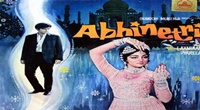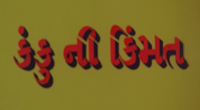High Heels (Spanish: Tacones lejanos) is a 1991 Spanish melodrama film written and directed by Pedro Almodóvar and starring Marisa Paredes, Victoria Abril and Miguel Bosé. The plot follows the fractured relationship between a self-involved mother who is a famous torch song singer and the grown daughter she had abandoned as a child. The daughter, who works as a TV newscaster, has married her mother's ex-lover and has befriended a female impersonator. A murder further complicates this web of relationships. The film was selected as the Spanish entry for the Best Foreign Language Film at the 64th Academy Awards, but was not accepted as a nominee.
| High Heels | |
|---|---|
Theatrical release poster | |
| Directed by | Pedro Almodóvar |
| Produced by | Agustín Almodóvar |
| Written by | Pedro Almodóvar |
| Starring |
|
| Music by | Ryuichi Sakamoto |
| Cinematography | Alfredo F. Mayo |
| Edited by | José Salcedo |
Production company | Canal+, CiBy 2000, El Deseo, TF1 Films Production |
| Distributed by | El Deseo S.A, Miramax |
Release date |
|
Running time | 112 minutes |
| Country | Spain |
| Language | Spanish |
The film has the feel of other mother-daughter melodramas like Stella Dallas, Mildred Pierce, Imitation of Life and particularly Autumn Sonata, which is quoted directly in the film.
Screenplay
Rebeca, a TV news broadcaster, is at Madrid's airport anxiously awaiting the return of her mother whom she has not seen since she was a child. Her mother, Becky del Páramo, a famous torch song singer, is coming back to Spain after a fifteen-year stay in Mexico. While waiting, Rebeca recalls incidents from her childhood in which her mother left her in the background of her life preoccupied with her career and her romantic life. For fifteen years Rebeca has longed for her mother to come back and for the love and affection of which she had been deprived. Nevertheless, her love is accompanied by a deep resentment.
Rebeca has since become a newsreader for a private television station owned by her husband Manuel. The reunion of mother and daughter is even tenser because Manuel was many years ago one of Becky's lovers. The night of her return, Becky, Rebeca and Manuel have supper and then go out to see Letal, a female impersonator whose drag act is based on Becky. For sometime, Rebeca has been coming to see the show whenever she misses her mother. Backstage, Rebeca helps Letal to remove his costume. Kneeling in front of him as she helps him undress, she is impressed by his manliness. Letal takes advantage of the situation and they make love. Manuel, who no longer loves his wife, wants to sleep with Becky again and divorce Rebeca.
A month later, Manuel is murdered in his villa. He had spent the evening first with his mistress Isabel, who is the sign language interpreter of Rebeca's words on the news, and then with Becky who, having become his lover again has learnt he had another mistress and had come to announce it was over between them. It was Rebeca who discovered the body. The investigating magistrate, Judge Dominguez, centers his suspicions on the mother and daughter whose relationship he knows has not recovered since Rebeca found out Becky was seeing Manuel.
On the day of Manuel's funeral, while reading the news of his death, Rebeca confesses to the murder live on television. She is immediately imprisoned, but the investigating judge seems desperate to prove her innocence despite all the evidence. Becky makes her return to the Madrid stage while Rebeca spends her first night in prison. In jail, she listens on the radio to a triumphant Madrid concert performance of her mother who dedicates her first songs to her. Paula, the social worker, takes a special interest in Rebeca; like her, she is heartbroken, grieving the loss of Hugo, her boyfriend. A nude picture of Hugo that Paula carries with her makes Rebeca think that Letal and Hugo are the same person. The judge arranges for Becky to see her daughter, and Rebeca now denies the murder of Manuel. Mother and daughter confess to each other their lack of love, their jealousy, and their secrets. Rebeca draws a comparison between herself and the daughter in the film Autumn Sonata in which the girl's mother, an outstanding pianist, asks her to play the piano and then humiliates her by telling her how to improve her performance. Rebeca suggests that she too has always felt inferior to Becky and has been forced to compete with her, winning only once by marrying Manuel. But even this victory was finally denied her, when Becky started an affair with Manuel. If Rebeca's desire to be closer to Becky led her, fifteen years ago, to murder her stepfather, it also played some part in her murder of Manuel, whom she sees as ousting in her mother's affection. The extent of Rebeca's fixation and the limitlessness of her adoration are too much for Becky's frail heart and her condition worsens. Back in prison, Rebeca discovers she is pregnant – carrying Letal's child. At once, the Judge releases her from prison but without any fresh evidence.
Rebeca goes to see Letal's final drag performance and in the dressing room discovers that he is the judge, Letal being one of the Judge's disguises and Hugo being another. He explains that his dressing up was not more than an investigative strategy and, knowing about her pregnancy, asks her to marry him. As Rebeca struggles to take this in, they see a TV broadcast relating Becky's sudden heart attack. They rush to the hospital. Rebeca confesses to her mother the murder of Manuel, and Becky decides to take the blame in order for her daughter to go free. Becky confesses to the murder and when she is taken home to die, Rebeca gives her the gun and Becky leaves her fingerprints on it, thereby incriminating herself and establishing Rebeca's innocence. When Rebeca sees the high heels of the women passing in the street, she tells her mother the sound of the heels from a distance reminds her of her mother coming home when she was little. She turns around and realizes her mother has died while she was talking.
High Heels was an interpretative tour de force for two essential actresses of the 'Almodovarian universe': Marisa Paredes and Victoria Abril. The male lead was difficult to cast. The actor had to be believable in drag and as a judge. The role eventually went to Miguel Bosé, a famous singer in Spain and Latin America. His casting was a cause celebre of the film publicity.
- Victoria Abril as Rebeca
- Marisa Paredes as Becky del Páramo
- Miguel Bosé as Judge Eduardo Dominguez/Letal/Hugo
- Féodor Atkine as Manuel (Rebeca's husband)
- Miriam Díaz Aroca as Isabel
- Anna Lizaran as Margarita
- Bibiana Fernández as Chon
- Cristina Marcos as Paula
- Pedro Diez del Corral as Alberto (Rebeca's stepfather)
- Mayrata O'Wisiedo as Judge's Mother
- Nacho Martínez as Juan (Rebeca's father)
- Rocío Muñoz as Rebeca as a child
- Javier Bardem as floor manager at the TV station
High Heels, Almodóvar's ninth film, was co-produced by El Deseo and Ciby 2000 and was released in Spain in October 1991. It was enormously successful in Spain. By the end of 1991, it had attracted an audience of more than 1.5 million, and eventually it came second in terms of box-office takings to Women on the Verge of a Nervous Breakdown among Almodóvar's films released up to that point.
The reaction of Spanish critics to the film was, on the whole, hostile. Antonio Castro, writing in Dirigido por, felt that Almodóvar's desire to create a more straightforward narrative had merely led to a greater loss of vigor. Angel Fernandez Santos in El País, concluded that, in comparison with Douglas Sirk's Imitation of Life, which he regarded as an Everest, High Heels was a mere hill. And in Expansión, Eduardo Torres-Dulce was firmly of the opinion that Almodóvar had had his day. David Thomson, in Sight and Sound, concluded that in general High Heels did not measure up to much of Almodóvar's earlier work. For him the homage to the other films – including Autumn Sonata – "is counter productive, for it merely suggests the inferiority of High Heels".
High Heels was very successful in Italy and reviews were both heartfelt and moving. In France the film was a huge success. The film did less well in other countries, such as Germany where Almodóvar's films have not been well understood. He commented "My films move very freely and to understand them one must simply allow one's intuition and sensibility free rein… I’ve never been asked so many irrational questions as in Germany".
High Heels was less successful in the United States than many others of Almodóvar's films. Like Tie Me Up! Tie Me Down!, High Heels was especially attacked on moral grounds, notably by certain women's groups. Almodóvar also complained that Miramax, the distributor of the film in the United States, did not understand the film and had no idea what to do with it.
The movie-review aggregator site Rotten Tomatoes lists a 50% rating on its "Tomatometer" (based on 14 reviews). The aggregator Metacritic lists a 51% favorable rating (based on 12 published reviews). The New York Times critic Janet Maslin wrote that High Heels has no real mirth and not even enough energy to keep it lively. Critic Roger Ebert said that "Pedro Almodóvar's films are an acquired taste, and with High Heels I am at last beginning to acquire it".
The original title of the film is Tacones Lejanos, which can be translated as Distant Heels and refers to Rebeca's childhood, when she was unable to sleep until her mother entered her bedroom and Rebeca was able to hear the sound of her mother's heels as she left, walking down the hallway. The inaccuracy of the English translation of the title affected the reception of the film, as the English High Heels suggests stylish comedy, whereas the Spanish Distant Heels conveys a feeling of family melodrama. The Spanish title Distant Heels is a reference to Raoul Walsh's film Distant Drums (1951).
The film High Heels which Almodóvar eventually made was not the one he had intended to make after the completion of Law of Desire in 1986. That film would have been a variation on García Lorca's classic play The House of Bernarda Alba and would have been set in rural Spain, not in Madrid. The story would have involved a domineering mother and her two daughters, both of whom leave home in order to escape her tyranny. The mother is subsequently thought to have perished in a fire but continues to pursue one of the girls for fifteen years. The proposed film did not come to fruition for a variety of reasons. Almodóvar turned instead to Women on the Verge of a Nervous Breakdown which could be conveniently shot in Madrid. When he eventually made High Heels it was fundamentally different from his original idea. Only the title remained. The plot was developed around the idea of someone confessing a crime on a live television news bulletin.
High Heels relates to the American tradition of melodrama and the so-called "woman's picture". Imitation of Life (1959), directed by Douglas Sirk, was a major influence and there are some striking parallels between High Heels and Sirk's film. In both films, the mother is a performer – Becky a singer, the Lana Turner character in Sirk's film an actress – whose career takes precedence over a young daughter; mother and daughter are rivals over a man; both films begin with the child separated from her mother at a holiday resort; and at one point Rebeca tells her mother to stop acting, a phrase borrowed from Sirk's film. Imitation of Life was both a remake and a reinterpretation of an earlier film – John M. Stahl's 1934 version – so High Heels is very much Almodóvar's own film, distinguished throughout by his particular style and concerns.
With its tense mother-daughter dynamic High Heels also pointedly nods to Michael Curtiz's Mildred Pierce (1945), though in that film it is the mother, a businesswoman, who obsessively loves her daughter. In Stella Dallas (1937), directed by King Vidor, the same kind of relationship is also prominent, though here the mother, Stella, is neither artist nor businesswoman but a lower class woman who has social aspirations for her daughter.
High Heels alludes both to the films made by Lana Turner and Joan Crawford and to their lives, to the relationship between Lana Turner, whose lover was killed by her daughter, and to the tumultuous relationship between Joan Crawford and her daughter Christina.

.jpg)
.jpg)




.jpg)






.jpg)






